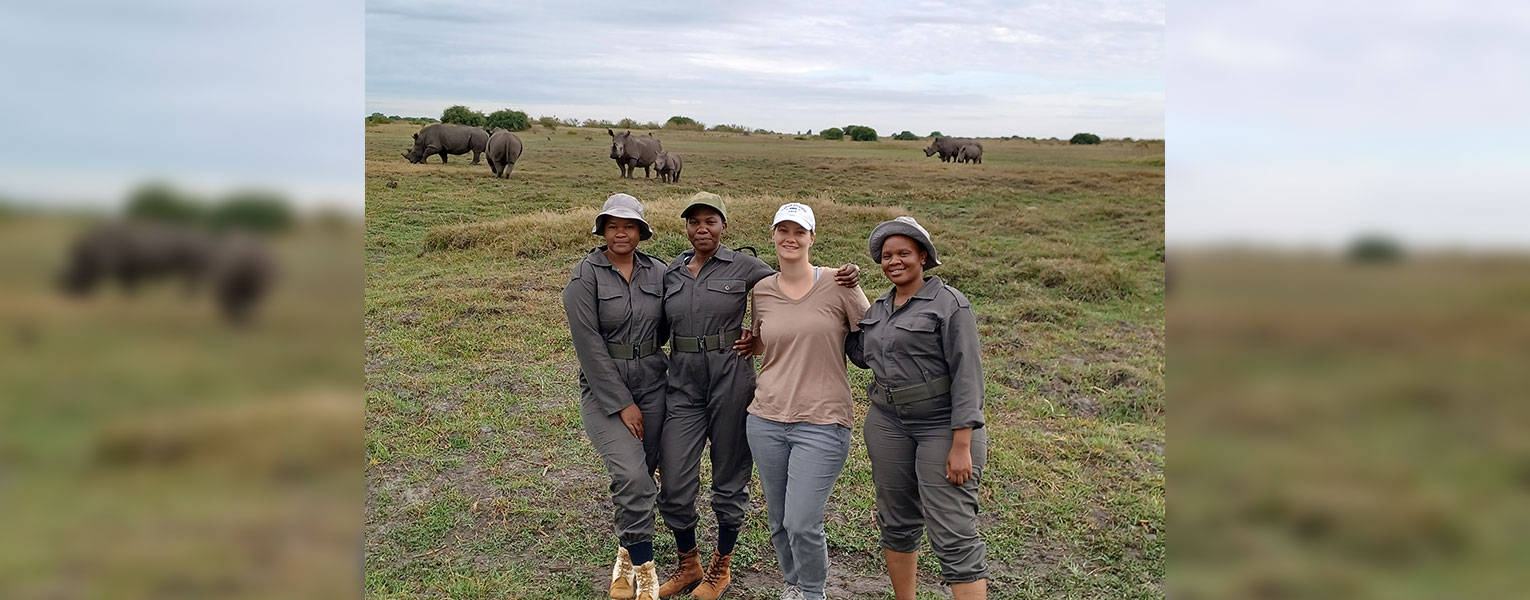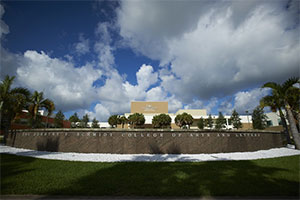3/15/2023
Empowering Women Living With Wildlife
FAU Researcher wins Fulbright Scholar Award to Study All-Women Teams Protecting Wildlife
By Bethany Augliere
In southern Africa, all women teams defend threatened animals from illegal poaching. When Annette LaRocco found that no one was studying these new female-conservation teams, she decided to research their practical, on-the-ground impacts, she said. For this work, LaRocco, assistant professor in the department of political science in the Dorothy F. Schmidt College of Arts and Letters, received the 2022-23 Fulbright Scholar Award for the Africa Regional Research Program.
LaRocco has conducted research in Botswana with the Chobe Angels, an all-female safari guide team based in the Chobe National Park. She also did research with the Great Plains Foundation's all-female wildlife ranger team. Both of these teams were established to bring more women into these male-dominated spaces, including the tourism industry and conservation. They have objectives that are both focused on wildlife management, as well as women's empowerment initiatives.
“Any time a new policy approach is created with great fanfare and lifted up as a new potential innovation in doing conservation better, it is up to researchers and scholars to examine those claims and assess how these programs operate on the ground,” she said. “When all-female teams are created, the rationale is that they are better for the environment, the community, and can be a win-win in terms of balancing conservation and development. My research aims to investigate whether these claims are true, and if not, what are they doing instead?”
LaRocco thinks her findings will help understand how these teams come into being, what they do in practice, and whether they live up to the lofty claims about their impacts and effectiveness.
Her project, titled “Mother’s Nature?: What All-Female Conservation Initiatives Can Tell Us About Gender, the Environment, and Power,” enables her to conduct research in two sub-Saharan countries: in Botswana, with host institution Okavango Research Institute in Maun, a center of the University of Botswana and one of the leading research hubs for critical conservation studies in the region; and in Zimbabwe, with host institution the Gender Institute at Midlands State University in Gweru.
For this project, she will conduct interviews with the participants in all-female teams, as well as their trainers, managers, local conservation practitioners, and others involved in the wildlife economy in the region. Alongside in-depth, one-on-one interviews with the team members, she also does participant observation, which includes going along on wildlife patrols or game drives in order to do further data collection.
“Being able to interact with such an interesting group of women has been fascinating. Botswana is still quite a patriarchal society. The women who chose to step outside of rigid gender norms to work in a traditionally male-dominated field like wildlife management have incredibly interesting life stories and perspectives on their current work,” LaRocco said. “This project wouldn't work without the enthusiastic participation of these women and their generosity in sharing their time and insights with me. I'm most excited to be able to foreground their stories in future publications from this project.”
If you would like more information, please contact us at dorcommunications@fau.edu.

